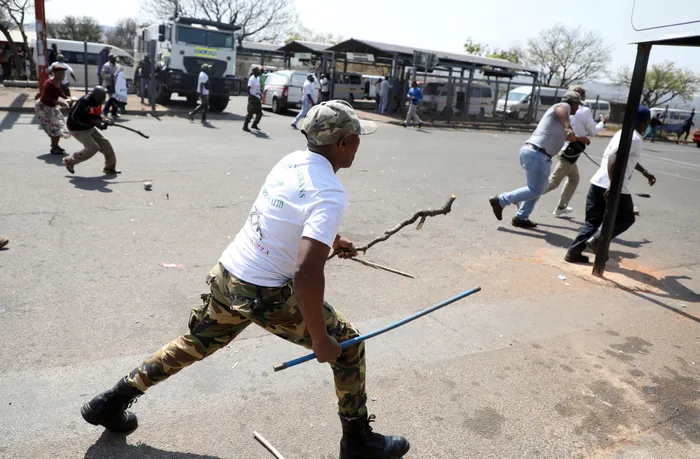
Understanding the legal implications of Operation Dudula's actions in Soweto.
Image: Oupa Mokoena/Independent Media
Three women from Operation Dudula were let go with a warning after being arrested for blocking foreigners from gaining access to a clinic in Soweto recently.
Despite this, the vigilante group has continued with its operation, disregarding the message from the Orlando Magistrate's Court.
KwaZulu-Natal violence monitor Mary de Haas told IOL that the Operation Dudula members should have been fined or given a suspended sentence.
"It goes beyond the protesters; the people who should have stopped it were the police and hospital security," De Haas said. "There should have been some sort of penalty, not just a warning."
But what does a 'warning' denote?
Criminologist Thabang Bogopa explained that when people are released on warning, it means that they were charged, but given free bail.
"The South African Constitution allows for people to be given free bail. For example, if students are striking at a university, the best thing for them would be to be charged, released, given free bail, and a court date for them to appear in court.
"This allows the state to go and gather more evidence and send in the case docket to the prosecution for a decision regarding the enrollment of the case," he said.
The women's case is scheduled to return to court on September 10. However, Bogopa added that the state might struggle with witnesses.
Operation Dudula vows to continue
The secretary general of Operation Dudula, Zodwa Booi, expressed anger at the arrest of the women, saying they were fighting for South African rights.
"The government of South Africa is neglecting the people of this country. Somebody needs to stand up and fight," Booi said. "If illegal foreigners are caught in clinics or hospitals, they are supposed to be arrested and deported."
Booi went on to say that Operation Dudula was not deterred by the arrests. "We are not going to stop. We are going to fight more, together with the people of this country...They will need to open more cells cause more arrests will follow if this is how they will act."
What does the health minister say?
Talking to the SABC, Dr Aaron Motsoaledi said he warned Operation Dudula and said their mission will harm undocumented South Africans.
Motsoaledi said that according to statistics, 11% of South Africans are undocumented.
"If you look at our population, 11% will be about six million people. They don't have any form of documents but, they are not illegal," he said. "I said to them, if you are going to turn away many South Africans. Having work at Home Affairs, I met such people. So I said they must be very careful."
What does the Constitution say?
According to the South African Human Rights Commission (SAHRC): "Section 27(1) of the Constitution of the Republic of South Africa, 1996, clearly states that: 'Everyone has the right to have access to healthcare services, including reproductive healthcare.'
"This constitutional provision means that all people in South Africa, regardless of nationality, legal status, race, gender, age, income level, or geographic location, are entitled to access basic healthcare services. This includes: South African citizens, refugees and asylum seekers, documented and undocumented migrants, and stateless persons."
IOL News
Related Topics: